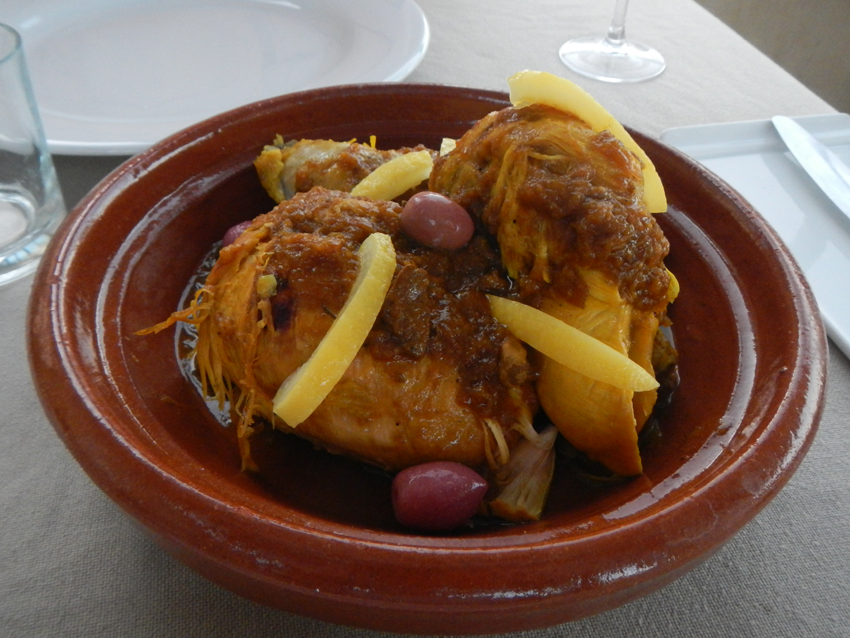Last Updated on April 6, 2023 by PowersToTravel
I’ve written a complete soup-to-nuts list of diabetic travel tips, “Diabetic Travel Tips for International Travel.” This current article about Morocco supplements and highlights some of those standard tips.

I hadn’t realized before we arrived that Morocco is a US-friendly, forward-thinking Arab nation. I had just thought that it was geographically somewhat removed from the other nations of the Middle East, but I didn’t realize that ideologically it was different too. However culturally we experienced such a amazing Islamic and Arab vibe.
Diabetics need to be prepared and careful, but this small amount of effort should not dissuade you from visiting this out-of-this-world location.
Vaccines and visiting your travel clinic
We checked the CDC travel website for Morocco and found the usual list of suspects: Hep A and B, and Typhoid. Our vaccines for those were up to date. Malaria is not a risk so that gave the us the green light and the more cost-effective solution – no need for a travel clinic visit this time.
Flying Challenges
Morocco is a 7 hour direct flight from JFK, so it is about the same as flying to Europe. There is a five hour difference between East Coast US and Morocco – even shorter than Europe. Morocco did not introduce any new risks for us.
Activity Levels
Due to the heat we experienced in Mid-May, we were actually much less active than we expected. We would drive to a location in our agency-provided SUV with driver, then go for a walk to an historical site, or in a shaded medina. It was very important to keep hydrated (See my article Diabetic travel tips for International Travel (section Preventing Dehydration), as the heat could be intense at times, but it was a dry heat.
Keeping insulin cool while traveling
Obviously with heat a major factor, keeping the insulin cool was a constant goal. In the vehicle we put the insulin in Greg’s Kooltron travel refrigerator (don’t I love it!), and when outside the vehicle I would ensure that I wore my tropicwear shirts outside my waistband. Check out my solutions in “How to keep insulin cold for more than 28 days and more than 24 hours” and “Diabetic travel tips for International Travel”
Eating Unusual Foods, Avoiding the Water, and Coping with the Vomiting and Diarrhea
Usually I write about these three topics separately, however for Morocco they came together, like a nasty triumvirate.
The Salad
Do not drink the water, no matter how luxurious the accommodation and how many other Westerners you see eating the salad! The accommodations we had at Dades were very nice, and we were presented a beautiful multi-course meal on a terrace. Along with all of the other Western guests, I looked longingly at the salad and said to myself, “It must be good – everyone else is eating it.” You wouldn’t generally consider a salad to be an “unusual food” however in this case it had an unusual effect.
I (and I alone of everyone in the hotel) woke up early the next morning, vomiting. Thanks to my speedy treatment with Cipro (antibiotic), Reglan (anti-vomiting) and Immodium (anti-diarrhea), we were able to get on the road by noon. Read my article “Traveler’s Diarrhea and Diabetes – How do I stop it and quickly?” for all the details of how I quickly recover from such episodes.
I missed seeing Dades Gorge, although Greg did go out to see it while I rested in the morning, so we have pictures. Due to my fatigue, we cut that next day short by immediately checking into our “kasbah” and delaying Ait- Benhaddou until the next morning.
The Tagine
On the other hand, Tagine is the most Moroccan of dishes, and offers so very little risk. Tagine is a stew-like concoction of chicken, or beef, accompanied by vegetables, spices and gravy. It is always well cooked, and presented in the red-brown clay plate topped with a clay “hat.” Unfortunately I don’t have a picture of the tagine top, just the food. We actually got tired of tagine, eating it almost every night at our riads, however it was a dish I didn’t need to fear for its lack of hygiene.
Avoiding the Mosquitos
Mosquitoes? In such a hot desert climate? You are right, there aren’t mosquito concerns in Morocco. Ah, Love that Dry Heat!
Travel Insurance
I am aware that there are different medical travel insurance issues for those who live outside the US, or those whose medical plans don’t cover them abroad. However, ours does, so generally I have to consider whether I would be happy to be treated by the medical clinics or hospitals in the country to which I am traveling, or not. I would not be happy being treated in a Moroccan hospital.
Summary
Morocco, for all its eastern allure, is not a difficult place for diabetics to travel. Don’t drink the water and watch the heat!





